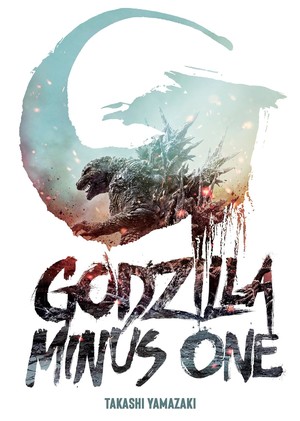The Fall 2025 Light Novel Guide
Godzilla Minus One
What's It About?

After failing to carry out his suicide mission, disgraced kamikaze pilot Koichi Shikishima returns to ravaged postwar Japan to find his parents dead and country destroyed. Having lost both his honor and his family, he must try to slowly rebuild alongside the thousands orphaned by the Tokyo air raids—including a woman named Noriko and her adopted child, whom he invites into the ramshackle remains of his home.
But as these struggling survivors begin to reclaim a semblance of stability, a new and unprecedented threat appears on the horizon—a rampaging, colossal creature from the deep that their defeated nation cannot defend against. With no hope of aid from the occupying forces, can a ragtag militia of misfits band together to thwart this titanic terror?
Godzilla Minus One has story by Takashi Yamazaki. English translation is done by Evan Ward. Published by Seven Seas (September 2, 2025).
Is It Worth Reading?
Erica Friedman
Rating:
Godzilla Minus One was an excellent movie, combining a nuanced perspective of World War Two, not as a noble endeavor that failed, filled with heroes and villains. Instead the war is depicted as a complete waste of human life, from the perspective of the survivors who had to rebuild and find ways to live with their grief and trauma. I do not think this movie could have been made without Godzilla, as it is deeply critical of the Japanese government, both during the war and after.
This book is a literal novelization of the movie – nothing is changed and no new information is presented, beyond a line or two of implied, but not audibly expressed, internalized reaction. On the positive side, this book is a very fast and fun read. The descriptions are clear and easily understood—it's very easy to follow the motivations and actions of both monster and men here. If you've seen the movie, each chapter will recall the specifics of every scene. Which, depending on your approach to visual media, can be a positive or a negative. At the end of the book, I felt that the movie was the superior media, especially for the grandeur and grotesquery that is Godzilla, and for the visceral horror of newly-rising Tokyo being leveled once more.
The characters are very human, there is a lot of anger about the largely absent government's lack of action. People investigate their own feelings and have the conversations that need to be had. The ending is ambiguous, hopeful, yet eerie.
I had hoped that a novel would present some extra layer of storytelling, but don't let that stop you from reading it. This is a very good tale told well.
Rebecca Silverman
Rating:
I said in my review of the original Godzilla novels that until I read them, I hadn't quite pieced together the fact that Godzilla is meant to be the embodiment of war. Takashi Yamazaki, fortunately, fully understands that. Godzilla Minus One knows that the giant monster isn't just a creature damaged by radiation; he's the concept of War given flesh, a lone horseman of the apocalypse who carries the other three within his being. He's the senselessness of the war machine, the unnecessary deaths, and the unintended consequences.
That's true of the original novels, too, of course, but Yamazaki's version does away with all subtlety. I don't say that as a denigration of the storytelling here, because I do think it needs to be spelled out as the generation who lived through World War Two dies. To that end, making the point of view character a failed kamikaze pilot is important. Koichi Shikishima first meets Godzilla before his mutation at the hands of the Bikini Atoll nuclear tests; in a bid to survive what he recognizes as an unwinnable war, Koichi fakes a mechanical issue during a sortie and lands on a remote island outpost. Godzilla attacks, and Koichi isn't able to counterattack in the moment, resulting in many deaths. This, along with citizens' disgust at his failure to die for his country as ordered, haunts Koichi, making him feel he doesn't deserve to live. As he puts it, his war has not ended.
This is a recurrent theme in the novel, and one of the strongest aspects of it. Godzilla himself is both victim of the war machine and a perpetuator of it, with his victimhood ensuring that his war will never end, as he has been rendered immortal by radiation. His reaction is to create a Japan where his war will be brought to the people, although I don't think he sees it that way, if he truly understands at all what's happened to him. That, too, is important symbolism, because it's the way conflicts continue to escalate, and the fear of someone coming again to wreak havoc and kill people is often enough to jumpstart a new war. It truly is an immortal monster, returning to shore again and again, unending.
While Godzilla Minus One can be a bit on the nose at times (particularly the ending, although I do like the way a foreign ejector seat plays into Koichi's story), it ultimately understands the assignment. I haven't seen the film version, so I can't really speak to how this compares, but if you like original flavor Godzilla or are just looking for a new way to spark a conversation about how war helps no one, this is worth your time.
The views and opinions expressed in this article are solely those of the author(s) and do not necessarily represent the views of Anime News Network, its employees, owners, or sponsors.
discuss this in the forum (4 posts) |
this article has been modified since it was originally posted; see change history
back to The Fall 2025 Light Novel Guide
Seasonal homepage / archives